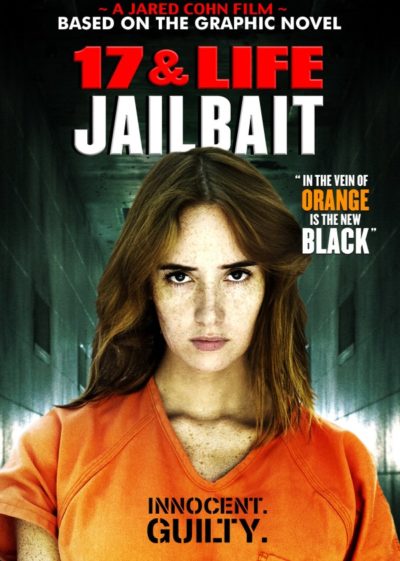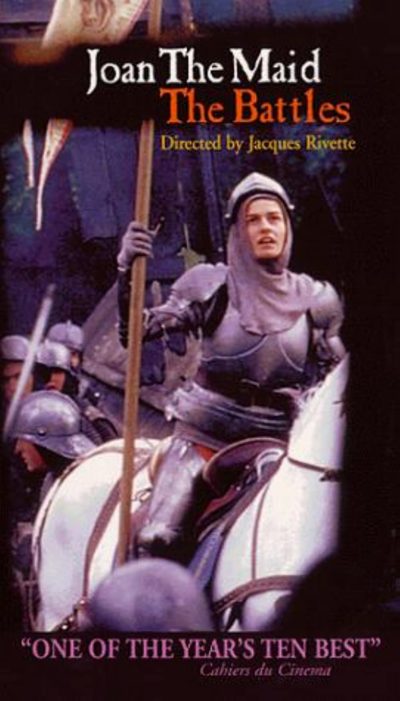★★★
“Always bet on black…”
 Director Bamford has certainly had himself a year. This is the third film of his in 2024 to be reviewed on this site, following Air Force One Down and Hard Home. It’s actually his feature debut, and seems to date back a few years, before getting released. Jade is definitely rougher around the edges than what would follow, although that offers some advantages as well, in that there appear to be more risks taken stylistically. Whether these work or nor is likely a matter of personal taste. For example, how do you feel about a heroine who kills one enemy by throwing her Afro pick at an enemy like a ninja death star, embedding it in his forehead?
Director Bamford has certainly had himself a year. This is the third film of his in 2024 to be reviewed on this site, following Air Force One Down and Hard Home. It’s actually his feature debut, and seems to date back a few years, before getting released. Jade is definitely rougher around the edges than what would follow, although that offers some advantages as well, in that there appear to be more risks taken stylistically. Whether these work or nor is likely a matter of personal taste. For example, how do you feel about a heroine who kills one enemy by throwing her Afro pick at an enemy like a ninja death star, embedding it in his forehead?
Me, I liked it, but have seen other reviews which called it ‘just plain silly’, so to each their own, I guess. It does need some more consistency of tone, I think, and the script is too loose, with elements which don’t matter. The heroine, Jade (West), is a Brit who came over to America with her brother after their parents were murdered, fell in with the wrong crowd and accidentally killed her sibling with a stray bullet. She’s now sworn off guns, but is in trouble after coming into possession of a hard drive, sought after by gang boss Tork (Rourke), with extreme prejudice. While her allies are few, they include her brother’s widow, Layla (McNamara) and a cop investigating things, Reese (Dacascos).
It’s clear that the main inspiration for Jade is Pam Grier, and her roles in the likes of Coffy and Foxy Brown. This is most apparent in her fabulous Afro, which is so large, you feel it should have its own gravitational well. West is a stuntwoman, a background shared by Bamford, and a lot of the supporting cast too. This comes through, for obvious reasons, in the action, which is reliably well-executed. However, Bamford seems to be trying to find his style, and adopts a few different approaches, not all equally successful. For example, sometimes he goes for a shaki-cam approach. You’d think someone like him would know that’s close to the worst approach when it comes to showcasing stunt work.
As noted, the story has issues too, especially early on, with a particularly rough expositional dump at the beginning. Turns out the whole saga of Jade’s brother and her background in Britain are not very important at all – except for explaining her strong English accent. It’s definitely a case where less would have been more. Still, there’s a good deal to enjoy here, and I will be interested to see where West goes. She seems to have a huge social media presence – 1.1 million followers on something called “Instagram”, whatever that is… Her comic-book style there seems to match the approach in this, and she has potential. As we’ve seen, the same goes for Bamford, and I am looking forward to seeing what he brings to our table, in 2025 and beyond.
Dir: James Bamford
Star: Shaina West, Katherine McNamara, Mickey Rourke, Mark Dacascos





 Well, that only took… twenty-one years. Back in 2003, I watched and reviewed
Well, that only took… twenty-one years. Back in 2003, I watched and reviewed  This film is based on a Korean webcomic, but has been relocated to Japan. I can’t help wondering if something was lost in the process, because it feels like I should have liked this more than I did. Ran Tachibana (Miyoshi) is a promising amateur boxer, who gets devastating news when the body of her sister Yuzuki is found inside a burned-out vehicle. The cops call it suicide and quickly close the case. Except Ran doesn’t believe the corpse is Yuzuki, and begins to investigate what might have happened. The search leads her to an underground fight club run by the brutal Nikaido (Ito), who is holding Yuzuki hostage. He makes Ran an offer: beat his undefeated champion, and he’ll let Yuzuki go.
This film is based on a Korean webcomic, but has been relocated to Japan. I can’t help wondering if something was lost in the process, because it feels like I should have liked this more than I did. Ran Tachibana (Miyoshi) is a promising amateur boxer, who gets devastating news when the body of her sister Yuzuki is found inside a burned-out vehicle. The cops call it suicide and quickly close the case. Except Ran doesn’t believe the corpse is Yuzuki, and begins to investigate what might have happened. The search leads her to an underground fight club run by the brutal Nikaido (Ito), who is holding Yuzuki hostage. He makes Ran an offer: beat his undefeated champion, and he’ll let Yuzuki go. The structure here is kinda odd. While each of the three volumes included in this omnibus are effectively standalone stories, they each feel so slight as almost not to be worth bothering with. In particular, there seems to be a
The structure here is kinda odd. While each of the three volumes included in this omnibus are effectively standalone stories, they each feel so slight as almost not to be worth bothering with. In particular, there seems to be a  This is a question posed by the bad guy (Fears) towards the end of this, and of course, he provides the usual explanation in response: “It’s doing the same thing, expecting different results.” After watching this, I would choose to adjust it slightly. A valid definition of insanity is making the same movie, and expecting different results. Because it is, more or less, what Rankins has done here: it’s a remake of his own movie from fourteen years ago,
This is a question posed by the bad guy (Fears) towards the end of this, and of course, he provides the usual explanation in response: “It’s doing the same thing, expecting different results.” After watching this, I would choose to adjust it slightly. A valid definition of insanity is making the same movie, and expecting different results. Because it is, more or less, what Rankins has done here: it’s a remake of his own movie from fourteen years ago,  Of all the scathing reviews this has accumulated on Letterboxd.com, I think my favorite is the one which starts, “Obviously written by someone who knows absolutely nothing about the penal system.” Yes, seriously. I strongly suspect things like this were written by people who know absolutely nothing about women-in-prison films, and who inexplicably managed to overlook the title of the damn movie in their expectations. Me, I had initially overlooked this, believing it to be just a retitling of the same director’s
Of all the scathing reviews this has accumulated on Letterboxd.com, I think my favorite is the one which starts, “Obviously written by someone who knows absolutely nothing about the penal system.” Yes, seriously. I strongly suspect things like this were written by people who know absolutely nothing about women-in-prison films, and who inexplicably managed to overlook the title of the damn movie in their expectations. Me, I had initially overlooked this, believing it to be just a retitling of the same director’s  I liked this considerably better than its predecessor. Part of that was, perhaps, knowing what to expect going in: a minimalist retelling, with occasional musical numbers. Except, this proved rather more than minimalist (though still very restrained), and there was hardly any singing at all. Curse you, Dumont, for confounding my expectations. It begins, much as Jeanette ended: with a lot of standing around in sand-dunes, chatting. However, the cast this time cannot be counted on the fingers of one hand, and there aren’t any staggeringly bad performances to take you out of the movie. You still don’t get any great battles. Instead, these are basically represented by team dressage, two groups of horses and riders, swirling around near each other.
I liked this considerably better than its predecessor. Part of that was, perhaps, knowing what to expect going in: a minimalist retelling, with occasional musical numbers. Except, this proved rather more than minimalist (though still very restrained), and there was hardly any singing at all. Curse you, Dumont, for confounding my expectations. It begins, much as Jeanette ended: with a lot of standing around in sand-dunes, chatting. However, the cast this time cannot be counted on the fingers of one hand, and there aren’t any staggeringly bad performances to take you out of the movie. You still don’t get any great battles. Instead, these are basically represented by team dressage, two groups of horses and riders, swirling around near each other. I initially intended to review this and its sequel, Jeanme, by Dumont as one entity, for a couple of reasons. They really only work as a single item. This confused the hell out me, because the second film turned up on a streaming service by itself. Five minutes in, I was so confused, I started searching the Internet, only to find I had, in effect, joined a movie already two hours in progress. Also, I suspected I would be hard-pushed to deliver 500 words on
I initially intended to review this and its sequel, Jeanme, by Dumont as one entity, for a couple of reasons. They really only work as a single item. This confused the hell out me, because the second film turned up on a streaming service by itself. Five minutes in, I was so confused, I started searching the Internet, only to find I had, in effect, joined a movie already two hours in progress. Also, I suspected I would be hard-pushed to deliver 500 words on  Just as part 1,
Just as part 1,  The above refers to the title, and in particular “The Battles”. It is a solid two hours before anything more than handfuls of English and French troops lobbing rocks at each other show up. So if you are here for large-scale spectacle, keep on walking. You will be disappointed. I had a certain idea of what to expect, having seen Rivette’s immediately preceding film La Belle Noiseuse. Admittedly, I saw it largely because I had the hots for Emmanuelle Beart at the time. Otherwise, a four-hour movie, containing lengthy sequences of real-time painting would probably not have been on my radar. But I kinda liked its languid pace (the copious Beart nudity didn’t hurt, let’s be honest!), and so was prepared for things in this to unfold at a similarly leisurely pace.
The above refers to the title, and in particular “The Battles”. It is a solid two hours before anything more than handfuls of English and French troops lobbing rocks at each other show up. So if you are here for large-scale spectacle, keep on walking. You will be disappointed. I had a certain idea of what to expect, having seen Rivette’s immediately preceding film La Belle Noiseuse. Admittedly, I saw it largely because I had the hots for Emmanuelle Beart at the time. Otherwise, a four-hour movie, containing lengthy sequences of real-time painting would probably not have been on my radar. But I kinda liked its languid pace (the copious Beart nudity didn’t hurt, let’s be honest!), and so was prepared for things in this to unfold at a similarly leisurely pace.